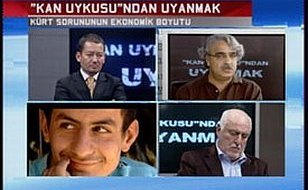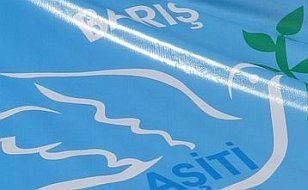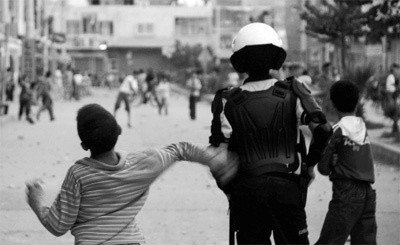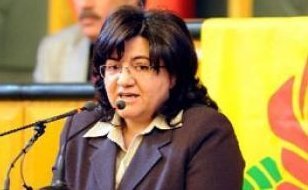Prof. Dr. Mithat Sancar and Kurdish politician Şerafettin Elçi think that the increase in the number of the discussions about the Kurdish problem on television is a positive development.
President of the Participatory Democracy Party (KADEP) Elçi thinks that the desire both in the state and the society to solve the problem, and the need to soften the conditioning the state imposes on the society regarding the problem that it has no solution are behind this change.
“Even yesterday’s anti-Kurdish proponents of toughness have softened their stance” according to Elçi, although he thinks they are still not discussing the necessary formulas for solving the problem. “There is still not a clear formula. Especially the state does not have a clear formula. But everyone accepts that this cannot go like this.”
Sancar: What is new is not the discussion, but the medium where the discussions are taking place
Sancar is also aware of the immediacy of the solution. “Those who have been blocking every kind of discussion with clichés and accusations are trying to say different things; on the other hand, they are not able to go on with the same discourse as easily as it used to be any longer. It reduces the tension when different voices discuss the different dimensions of the problem in a calm manner before the public. This will help creating an atmosphere for democratic political steps.”
According to Sancar, it may seem like we are back at where we started when we discuss that whether or not the Kurdish problem is a problem of identity and cultural right,. But what is new is not the discussion, but the medium where the discussions are taking place.
“While in previous years those who made programs behaved as proponents of or mouthpieces for toughness, today significant part of these people are trying to maintain a more mature discussion.”
Towards concrete and detailed discussions
Elçi too thinks that thanks to the continuance of this atmosphere of discussion, both the concrete steps for the solution and the subjects not easily discussed can be talked.
Elçi says, “I ask the journalists who are conducting these discussions to bring up these topics that cause so much reaction with the people who are experts on them.”
Among the topics he mentions are the issues that are not known, but about which people harbor prejudices, such as the topics of the federation, the cultural rights, and the right to speak one’s mother tongue .
“The worst is the state of being conditioned, the belief that granting rights to the Kurds may lead to separation. This should be dispelled. It should be explained to people that this will not happen, that the unity will be healthier and voluntary when people are happier.”
Sancar says while these discussions go on in this kind of atmosphere, the civil solutions for topics like the federation and ending the violence may be brought up in concrete and more detailed ways.
“First of all the problem should be discussable”
Elçi says that first of all the problem should be discussable. Otherwise a solution will not be possible with the prejudices that exist in the society.”
Sancar too says the first condition for a solution is to keep it simple: “I am talking about being able to speak freely. We should create an unrestricted atmosphere of discussion that is not strangled by political, social and legal procedures.” (TK/TB)















